275 MacLaren Street, Ottawa, ON K2P 0L9
Research Start-up Summary and Abstract:
In 2015, NBAPC began collaborating with Dr. Jula Hughes Professor in the Faculty of Law at the University of New Brunswick, to develop a research plan designed to improve the understanding and development of responses to cases of missing and murdered Indigenous women in Eastern Canada. In the planning phase, the NBAPC established a working group which consisted of representation from the Women’s Equality Branch of the New Brunswick Premier’s Council, Gignoo Transition House, the Indigenous Women’s Association of the Maliseet and representation from Mi’kmaq Territory. The collaboration is entitled “Looking Out For Each Other (LOFEO) – Assisting Aboriginal families and communities when an Aboriginal woman goes missing.” This project corresponds to earlier work of “Yes, We Can Look Out for Each Other”, a capacity study that is in partnership with the Urban Aboriginal Knowledge Network (UAKN). The focus of the research study was to assess whether urban Aboriginal service providers including Native Councils, Friendship Centres, and Transition Houses, were able to be responsive in delivering supports and assistance to missing Indigenous individuals and their families, friends and communities of MMIWG2S.
Rationale:
The objective of this study is to gain insight into the experiences of urban Aboriginal service providers who report and experience trauma secondary to supporting missing indigenous women as well as to their family and friends. A second objective will be to use this insight to strengthen the responsiveness of services to missing indigenous women and their friends by providing identifying supports to heal the trauma experienced by service providers. These insights could inform policy development as well as resource development that would help support the health of service providers and in turn strengthen the responsiveness to the community at large. The ultimate aim of “Lifting Spirits”, for which we are seeking funding support from UAKN, is to collaborate with urban Aboriginal service providers including Native Councils, Friendship Centres, and Transition Houses, in New Brunswick and Nova Scotia to answer the following question:
How do urban Aboriginal service providers envision trauma support when responding to cases involving missing and murdered indigenous women and girls?
The purpose of this research is to support urban Aboriginal communities by understanding and responding to the capacity of urban Aboriginal service providers including Native Councils, Friendship Centres, and Transition Houses. In responding to their trauma related needs, this project will identify resources as a means to strengthen their capacity to support and assist missing Indigenous individuals and the families, friends, and communities of MMIWG2S.
The intended deliverables of the study are:
Methods:
The project will use a conversational methodology to explore the experience of vicarious trauma as a result of the work that urban Aboriginal service providers engage in. The conversational method is a “method of gathering knowledge based on oral story telling tradition that is congruent with an Indigenous paradigm” (Kovach, 2010). The conversations will enable the researcher to identify the resources and other needs required to support urban Aboriginal services providers in their field of work. In addition, it will explore common practices that urban Aboriginal service providers currently find supportive in healing their trauma, and possible recognition of gaps in services which could be identified as supportive in the future.
Collaborating Friendship Centre and/or other urban Aboriginal organization:
New Brunswick Aboriginal Peoples Council, Elder: Della Brown
Main contacts:
Dr. Jula Hughes, Faculty of Law, UNB (Principal Investigator/SSHRC Co-Applicant)
[email protected]
Dr. Elizabeth Blaney, NBAPC (Community Researcher) and Janelle Marchand (Emerging Indigenous Scholar)